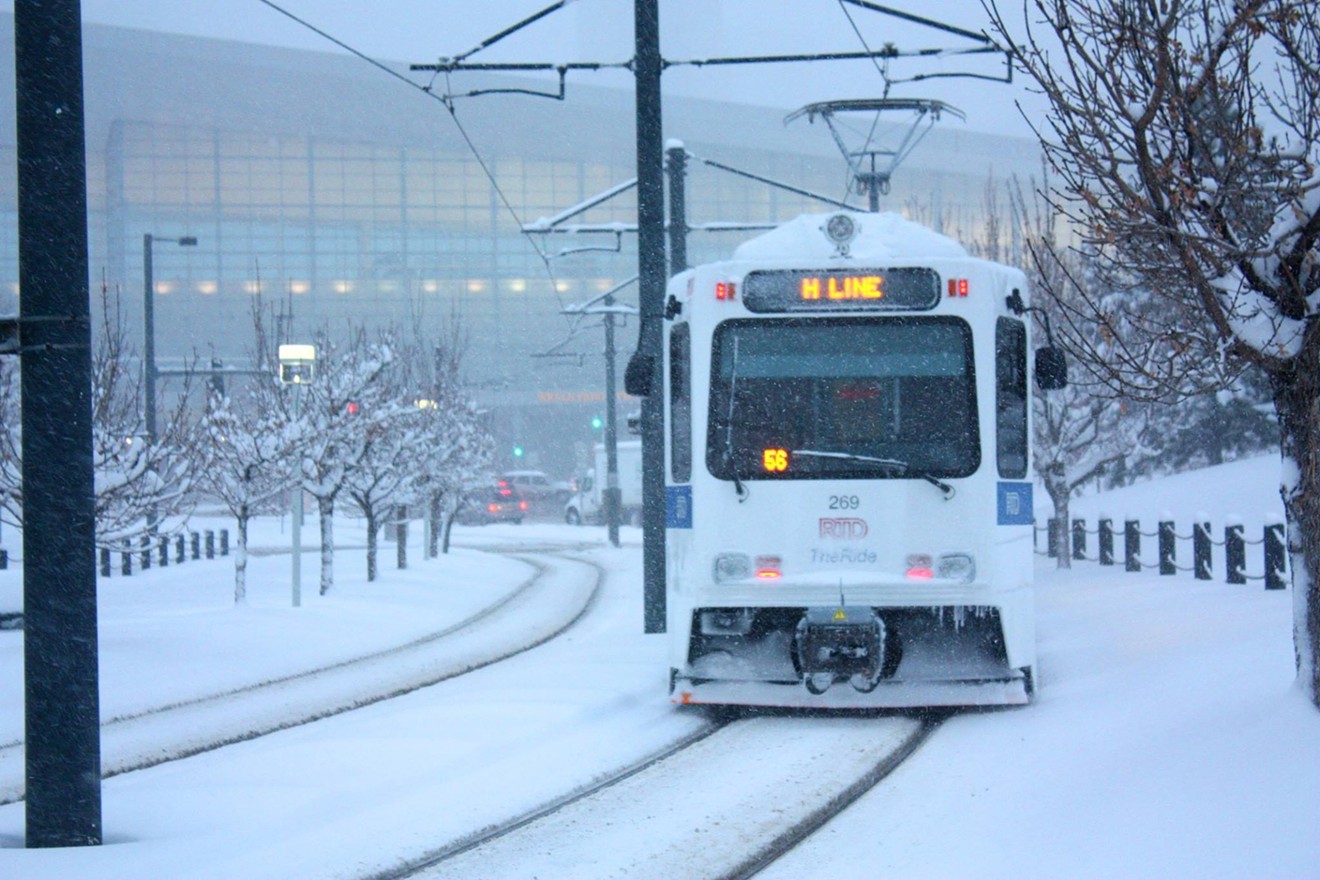The Regional Transportation District’s new interim general manager says he doesn’t want the job permanently — and that may be a fitting choice for a transit system in transition, and increasingly under scrutiny from riders and the lawmakers who oversee it.
RTD’s Board of Directors voted 9-6 on Tuesday, January 28, to hire Paul Ballard, a forty-year veteran of the transit industry who was most recently the CEO of Fort Worth’s Trinity Metro, to replace recently departed GM Dave Genova on an interim basis.
“My Board colleagues and I think that Mr. Ballard will skillfully lead us into RTD’s next era while also ensuring that the agency’s employees remain focused on their service to the public,” RTD board chair Angie Rivera-Malpiede said in a statement. “We look forward to working with him in the months ahead.”
While the board searches for a permanent GM in a process that could last a year or more, Ballard will take the reins of an agency grappling with declining ridership, a tightened budget and a persistent shortage of bus and train operators that has led staff to propose significant service cuts. And as boardmembers debated Ballard’s appointment in a closed-door executive session Tuesday afternoon, lawmakers at the State Capitol were introducing a bill aimed at making the troubled transit agency more accountable.
Senate Bill 151, dubbed the Accountability, Democracy, and Accessibility in Public Transit (ADAPT) Act, would make a wide range of changes to the Colorado statute that established RTD, in 1969. It would add two at-large, governor-appointed positions to the agency’s fifteen-member board, who would be tasked with focusing on access for people with disabilities and “equitable transportation planning,” along with other measures designed to strengthen non-discrimination laws. It would also require additional audits of the agency and establish whistleblower protections for employees.
“We believe in the value of a strong public transportation network and we want RTD to thrive,” Representative Dominique Jackson, a Democrat from Aurora, said in a statement. “The ADAPT Act will help RTD regain the trust of the public as well as improve its services.”
Shortly after SB 151's introduction, RTD boardmembers and staff issued a press release outlining their "concerns" with many of the bill's key provisions, including the new board seats and audit requirements. The agency also says it's already in compliance with laws like the Americans With Disabilities Act and the bill's additional measures are unnecessary.
“We look forward to continuing to work with our legislative partners to ensure that any bill that moves forward includes productive components that enhance RTD’s ability to serve our customers,” Rivera-Malpiede said. “However, we’re disappointed that none of our comments or recommendations were included in the bill.”
One provision in the bill that RTD does support, however, is the repeal of a 1989 law mandating that at least 30 percent of its revenue come from fares, a requirement known as the "farebox recovery ratio." It's a change that could help RTD rein in its highest-in-the-nation fares — or potentially even make some service free.
Amid the disruption of the operator shortage and Genova's departure, RTD has launched a two-year process, "Reimagine RTD," to perform a sweeping re-evaluation of its services and develop long-term plans for the "future of mobility" in the Denver region. Ballard, who retired from Trinity Metro in April 2019, won't be the one to lead RTD in carrying out those long-term plans, but committed to helping the board find the best candidate for the job as it pivots to a permanent GM search.
"I can help the board select the right search firm or process, and then keep that effort on schedule," Ballard wrote in his cover letter to the board last month. "I am not a candidate for the permanent GM/CEO position and would be an impartial coordinator of the process on behalf of the board."
Ballard will begin as soon as contract negotiations are complete. Other interim candidates considered by the board included Michael Ford, RTD’s chief operating officer; Mike Meader, RTD’s chief safety and security officer; Amy Ford, a former Colorado Department of Transportation executive; and Lone Tree Mayor Jackie Millet.
[
{
"name": "Air - MediumRectangle - Inline Content - Mobile Display Size",
"component": "12017618",
"insertPoint": "2",
"requiredCountToDisplay": "2"
},{
"name": "Editor Picks",
"component": "17242653",
"insertPoint": "4",
"requiredCountToDisplay": "1"
},{
"name": "Inline Links",
"component": "18838239",
"insertPoint": "8th",
"startingPoint": 8,
"requiredCountToDisplay": "7",
"maxInsertions": 25
},{
"name": "Air - MediumRectangle - Combo - Inline Content",
"component": "17261320",
"insertPoint": "8th",
"startingPoint": 8,
"requiredCountToDisplay": "7",
"maxInsertions": 25
},{
"name": "Inline Links",
"component": "18838239",
"insertPoint": "8th",
"startingPoint": 12,
"requiredCountToDisplay": "11",
"maxInsertions": 25
},{
"name": "Air - Leaderboard Tower - Combo - Inline Content",
"component": "17261321",
"insertPoint": "8th",
"startingPoint": 12,
"requiredCountToDisplay": "11",
"maxInsertions": 25
}
]












